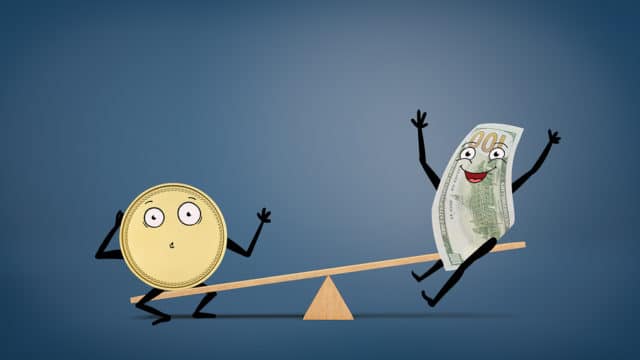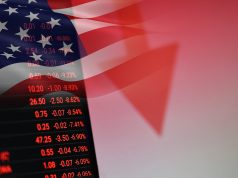Gold reached a seven-month low on Monday and recorded its biggest one-day loss in two months, mainly due to rising bond yields and the strengthening dollar. The precious metal ended June recording the first month of loss for the year. Prices grew at the beginning of the year, but rising bond yields in the US limit growth in the second quarter.
Spot prices fell by 1.6 percent on Monday to 1 221.37 dollars an ounce, while futures for August delivery lost 23.1 dollars in value, last traded 1 219.2 dollars an ounce. Analysts agree that the fall in price is highly accelerated by the passage of the 200-period moving average was 1234 dollars.
The dollar recorded its best session in the last few months on Monday, starting the new quarter with appreciation. Data showed higher than expected activity in the manufacturing sector, which led to a rise in bond yields and appreciation of the currency.
The dollar index, which measures the strength of the greenback against a basket of six currencies, rose 0.9 percent to 96.19, which is the biggest one-day rise since early March. It is confidently thrust of 9-month low reached on Friday a loss of 4.71% for the past quarter is the biggest for the last seven years.
According to futures trading in the United States last week, investors cut long positions in the dollar to its lowest level for the year. The US currency has been severely shaken by the prospect of higher global interest rates, but markets still assessing the possibility of this happening.
A rise of 0.9% was registered in the pair USD / JPY, which reached 113.40 yen. The euro also traded more cheaply, the currency moved away from year high against the dollar reached last week. The single currency fell 0.53% and was exchanged for 1.1363 dollars.
Tuesday will be a relatively quiet day for investors, since it’s the weekend the United States. The most anticipated news of the day came from the Australian central bank, The Reserve Bank of Australia (RBA), which left interest rates unchanged. It was reported that the strong inflation this year was due to more expensive energy resources.
Although bankers are confident that the inflation target will be reached, yet they believe that their monetary policy would be supported by the current interest rate level of 1.5%.










